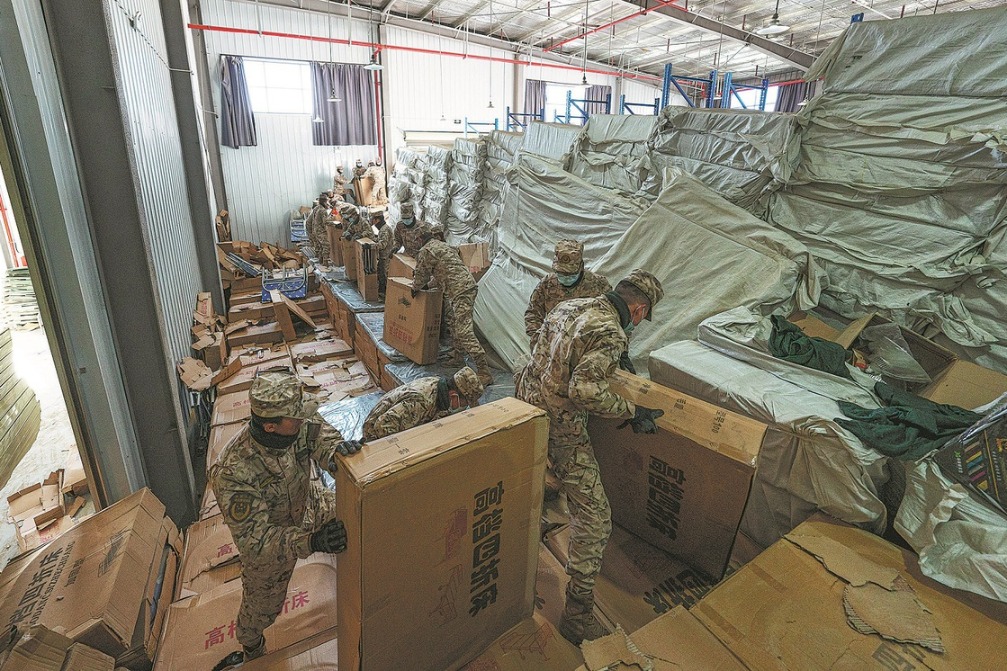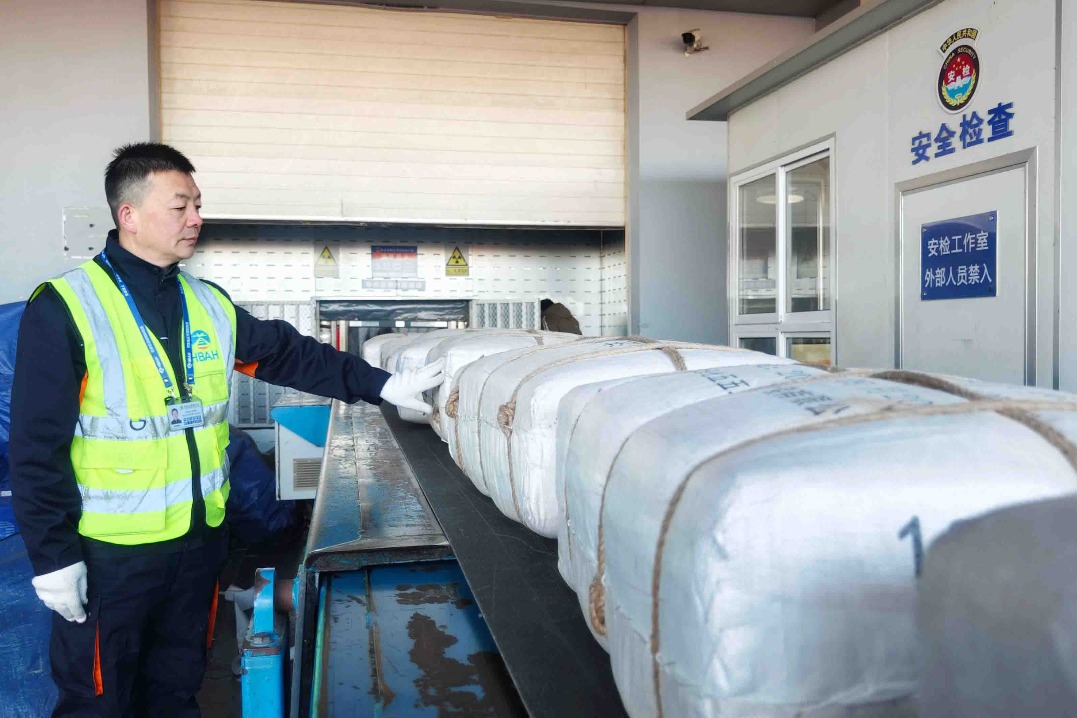Young people finding fondness for philately

In an era dominated by instant messaging and the ceaseless scroll of social media, it's easy to overlook the old-fashioned joys of letter writing and stamp collecting.
Yet, a surprising trend is emerging among the younger generation: a deep and enduring passion for philately and the exchange of postcards. Two young philatelists, Xu Chenhao and Ni Yichen, are part of the community that is rediscovering the joy of collecting stamps and sending postcards, seamlessly blending nostalgia with modern-day social connections and creative expression.
For Xu, a college student born in 2002, his journey into philately began unexpectedly during the COVID-19 pandemic in 2021.
"The pandemic prompted the release of a special set of stamps, commemorating such a unique period in history. They were beautifully designed, and I found them deeply meaningful," he recalled.
"At a time when everyone was struggling, these stamps resonated with people — it felt like a small but significant way to capture the moment," he said.
Initially, Xu's connection to stamp collecting was more casual. He was drawn to using stamps on postcards during his travels as a way to document his experiences.
"I'd send postcards to myself from different places, and sometimes I'd mail them to my friends just to stay connected," he said. "It was a simple way to share a piece of where I was and keep in touch."
As Xu became more involved in the philatelic community, however, his interest deepened. He began to appreciate the artistic and thematic aspects of stamps and postcards.
For Xu, the appeal of philately lies not just in the collecting but in the social side of the hobby, and its accessibility.
"You can send a postcard for just a few yuan, and there's a sense of camaraderie that comes with connecting to others who share the same passion," he said.
Exchanging postcards, designing new ones and brainstorming creative ideas with friends have become a regular part of his life. These in-person gatherings, where enthusiasts come together to share and collaborate, have fostered a sense of connection that transcends the digital world.
While older collectors often focus on preserving every stamp in meticulous albums, Xu explained that his generation is more inclined to embrace the creative and social aspects of philately. For them, stamps aren't just for collecting — they're tools for personal expression, especially through the postcards they share.
Window to wonders
For Ni, a high school student born in 2009, philately began with a chance encounter at the airport in 2021, the year that marked the 100th anniversary of the founding of the Communist Party of China. As he started his summer vacation, Ni came across an advertisement in a newspaper about commemorative stamps issued for the anniversary. Intrigued, he visited a local post office and purchased the beautifully designed stamps, and quickly found himself drawn deeper into the world of philately.
His passion for stamp collecting was further sparked during a trip that summer to Dunhuang, a city in Northwest China's Gansu province.
"When I visited Dunhuang, I saw stamps and postmarks tied to the local history," Ni recalled. "It wasn't just about collecting anymore; it became about connecting to the stories behind those stamps and understanding their cultural significance."
After the trip, Ni's collection grew rapidly, filling several boxes with stamps from across China. "I probably have two or three boxes now, and it's hard to keep track of all of them," he said.
His favorite themes include history and culture — especially stamps that commemorate landmarks in Pudong district in Shanghai, where he was born and raised. "Each stamp tells a unique story. I love finding stamps that reflect both the history of my hometown and the larger history of China."
Embracing the digital world
In an age when smartphones and social media reign supreme, both Xu and Ni have found ways to merge their love for stamps with the digital tools of today. "There are apps that allow you to scan stamps, learn about their history, and see the stories behind their designs," Xu explained.
"It's amazing how technology has made the hobby so much more accessible."
Both young collectors are also active on social media platforms where they showcase their collections and interact with fellow enthusiasts.
"It's a great way to meet people who share the same passion," Xu said. "We share not just our collections, but ideas and experiences."
For both Xu and Ni, postcards have become a new form of personal connection. Xu, for example, loves sending postcards from his travels to friends — especially from remote or culturally significant places. One of his most meaningful experiences was sending a postcard from Guizhou province, with the same stamp and postmark that a friend had once sent him. "It felt like a connection across time," Xu said.
Keeping the passion alive
Both Xu and Ni are optimistic about the future of philately. They know it may never again be as widespread as it once was, but they believe it still holds a unique charm for those seeking a deeper, more personal connection in an increasingly digital world.
"I think today's young people are looking for ways to tell stories," Xu said.
"Stamps and postcards are a way to express ourselves in a personal, creative way. The key is using stamps not just as collectibles, but as a way of telling a story — whether through a postcard we send or the designs we admire."
For Ni, the thrill lies in learning about China's history, art and culture through the stamps he collects. "It's like a window into different places and times," he said.
These young collectors hope to inspire others to discover the joys of philately — not just as a hobby, but as a way of forming deeper connections in a world that often feels increasingly disconnected. For Xu and Ni, it's about finding joy in small, meaningful moments — whether through a stamp, a postcard or a new friendship.




































